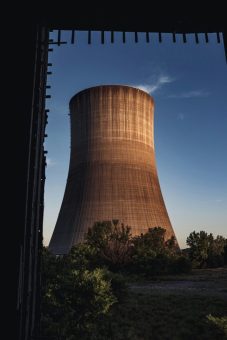
A technical problem occurred at the Fukushima Daiichi nuclear power plant. Reports say that during the morning check of the plant’s valve, the company employee discovered that radioactive water was leaking from one of the openings for purifying contaminated water, more precisely from the segment used for filtering caesium from the water.
After the problem was discovered around 08:52 am, immediate measures were implemented to stop the leak. The main filtered water valve was closed around 09:10 to stop the leak. Tokyo Electric Power Company (TEPCO), the plant’s operator, confirmed that the water leak was stopped around 09:16, the International Atomic Energy Agency (IAEA) said in a statement.
However, it has been estimated that around 5,500 litres of radioactive water leaked from the plant. Although there are no signs of contamination outside the facility, there has been a slight increase in contamination in the area where the problem is located, but within permissible limits, as reported by the company. The biggest problem is that the water contains metals such as caesium and strontium, which is why everything needs to be examined in detail, including the surrounding canals, reports the local media.
More:
- MINI NUCLEAR BATTERIES – TECHNOLOGICAL INNOVATION FOR EVERY DAY?
- GREAT BRITAIN’S AMBITIOUS PLANS FOR NUCLEAR ENERGY
- THIS IS THE STATE OF NUCLEAR POWER AROUND THE WORLD, ACCORDING TO AN EXPERT
The recent technical problems are certainly not related to the decision to release water treated by the Advanced Liquid Processing System (ALPS) into the Pacific Ocean, which we reported about earlier.
Namely, after the great disaster, TEPCO worked a lot on collecting and storing contaminated water to prevent further pollution of the environment. As part of these efforts, an Advanced Liquid Processing System (ALPS) was set up to reduce radioactivity in the water. Furthermore, additional treatment systems, storage tanks and watertight walls were installed along the coast, while uncontaminated groundwater was directed away from the power plant site.
Since last year, Japan has been releasing the treated and purified wastewater collected in the reactors since the major incident in 2011, stating that the wastewater is harmless to living organisms and has been diluted with seawater.
Energy portal



